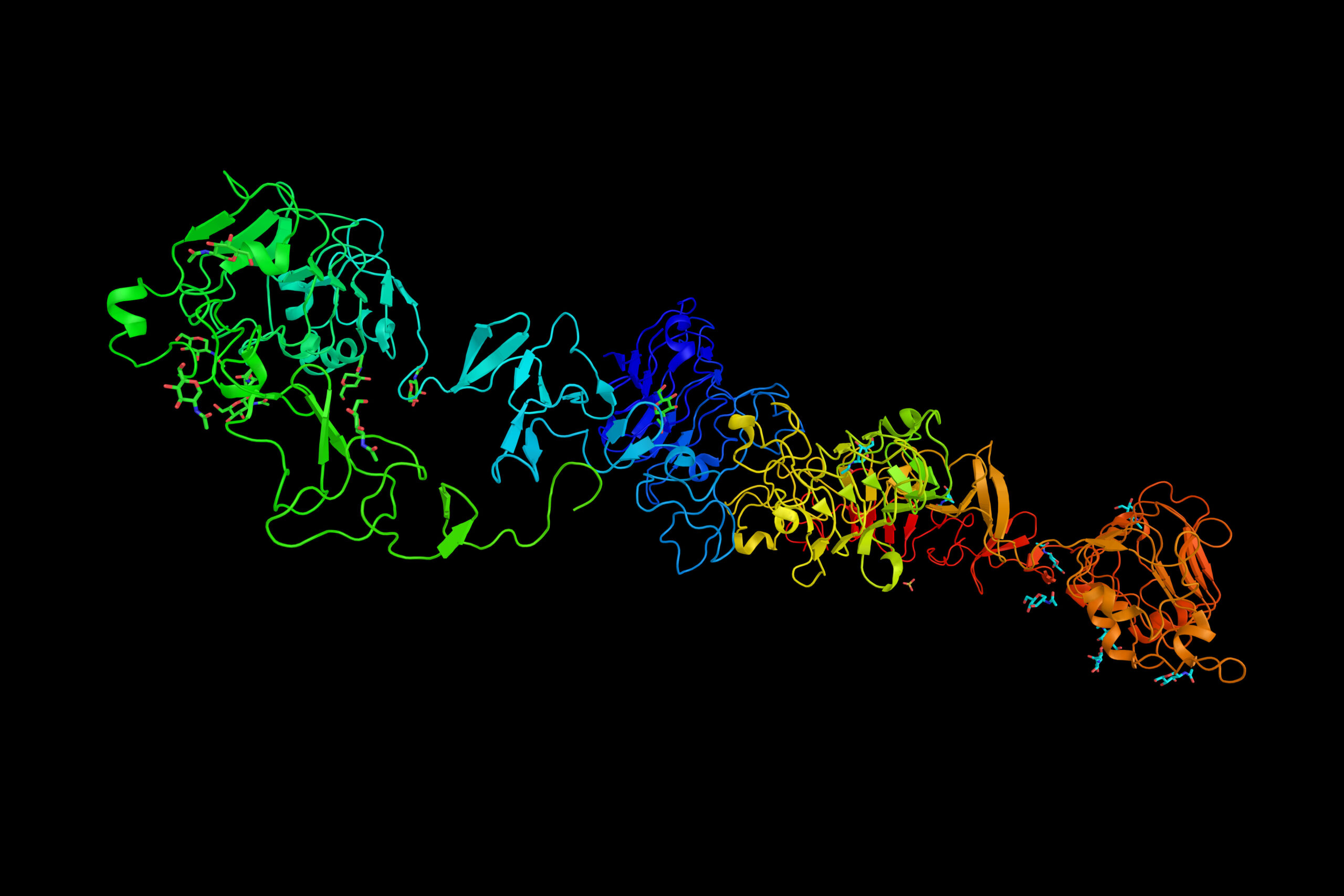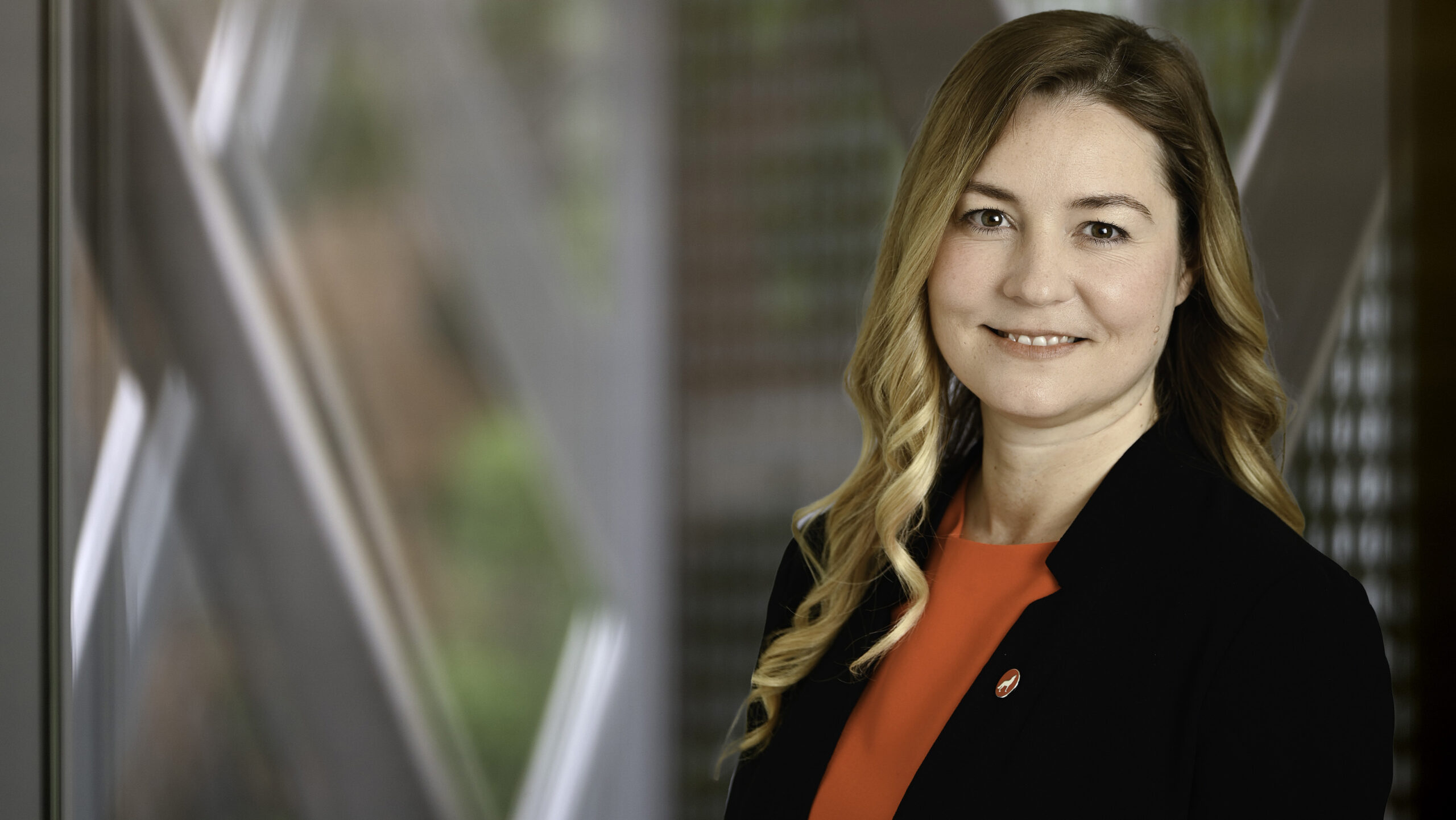NC State, Duke and UNC Partner on Protein Kinase Research Project
The project, funded by a grant from the Chan Zuckerberg Initiative, aims to help researchers better understand cellular organization, nervous system function and neurological diseases.

NC State University, Duke University and the University of North Carolina at Chapel Hill have been granted funding from the Chan Zuckerberg Initiative to develop new tools for monitoring and manipulating protein kinases. Protein kinases play a key role in biological regulation — and are also a frequent target for therapeutic intervention. This work will help researchers better understand cellular organization, nervous system function and neurological diseases.
Albert Keung, an associate professor of chemical and biomolecular engineering and Goodnight Distinguished Scholar at NC State who will serve as a principal investigator on the joint project, said the team’s goal is to “develop technologies to unlock how much of biology we can measure and see.”
“We’ve reached a point in biology where we know what a lot of the parts are,” Keung said. “We know all of the DNA sequences; we know most of the proteins that exist. But we don’t know how those proteins interact with other proteins, and with what strength, and with what speed.”
“It gets us part of the way there to know what the components are, but you have to understand how they interact with each other.”
And it’s not enough to merely know “whether A and B interact,” Keung said; more importantly, the research team is focused on measuring how strongly and how quickly certain proteins interact with one another.
Keung likens the current dilemma to cooking — or, specifically, trying to re-create a dish without the recipe.
“If you look at a dish, you can probably figure out what the ingredients are. But you don’t know how much of each ingredient was used and when. You don’t know how long and how they were cooked.”
Just as many different dishes can be made from the same ingredients — depending on the exact recipe — the strength and duration of reactions between proteins make a major difference in the outcome.
“The properties of a cell or organism, its function, and what goes awry in disease are all really dependent on how the parts get put together. That’s what’s hidden to us right now,” Keung said.
The research project — “Revealing the hidden topologies of the human kinome” — will be funded by one of four Exploratory Cell Networks grants, which “support early-stage tech development driven by collaborations across regional labs,” the Chan Zuckerburg Initiative (CZI) announced Feb. 29.
“To unravel the mysteries of the cell, we need new technologies …” Stephen Quake, Head of Science at CZI, said in the announcement. “These teams are developing novel tools and approaches to understanding, measuring, and engineering cells and molecules that are critical to building virtual cell models — which will open the door to new discoveries about human health and disease.”
“This work will pave the way for a new era of predictive biology,” said Scott Soderling, the George Barth Geller Distinguished Professor for Research in Molecular Biology at Duke University, who’s a principal investigator on the grant.
Collaboration is a central component of CZI’s Exploratory Cell Networks grants, with each team comprising researchers from at least three universities.
“Our combined skills in biosensors, proteomics and synthetic biology form the backbone of this Initiative,” Soderling said.
In addition to Keung, NC State is represented by professor Balaji Rao, an expert in protein engineering and high throughput methods, who will serve as a co-investigator. Duke is represented by Soderling, and UNC-Chapel Hill is represented by Klaus Hahn, the Ronald G. Thurman Distinguished Professor of Pharmacology.
To learn more about CZI’s four Exploratory Cell Networks grants, read this news release.
About CZI
The Chan Zuckerberg Initiative was founded in 2015 to help solve some of society’s toughest challenges — from eradicating disease and improving education to addressing the needs of our local communities.
CZI’s work in science includes grantmaking programs, open-source software development and close collaboration with its partner institutes at the Chan Zuckerberg Biohub Network. The CZ Biohub Network includes the San Francisco, Chicago, and New York Biohubs, as well as the Chan Zuckerberg Imaging Institute. CZI also collaborates with institutional partners such as the Kempner Institute for the Study of Natural & Artificial Intelligence at Harvard University.
For more information, visit chanzuckerberg.com.
- Categories:


